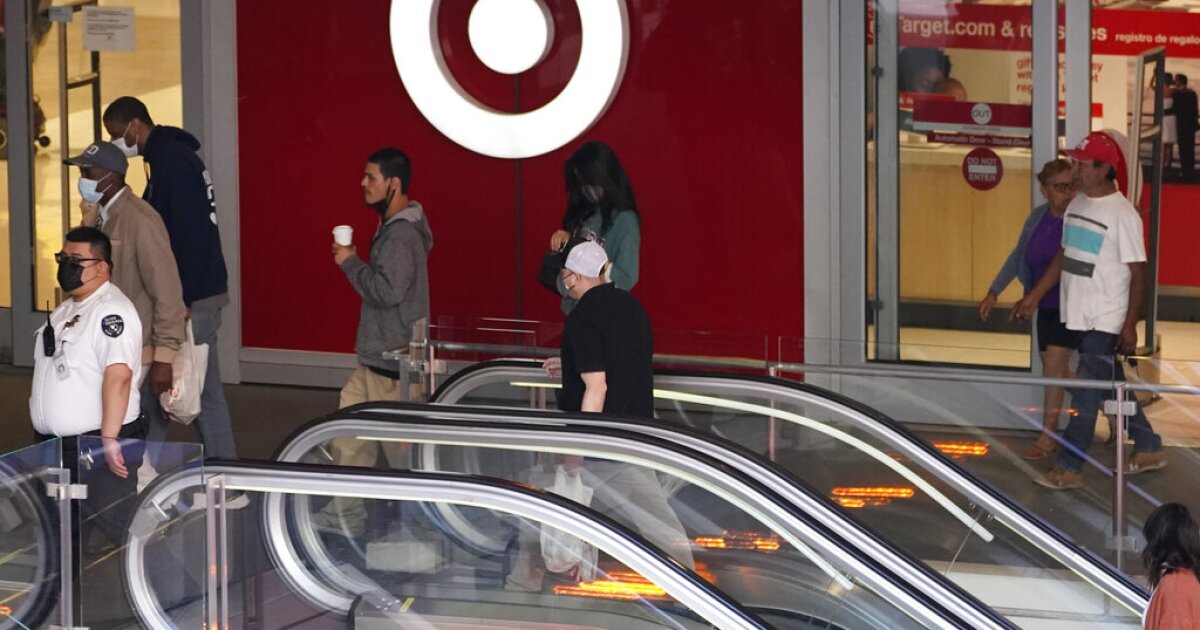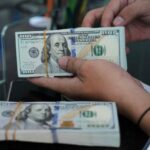

Consumer confidence ticked up more than expected in August as gas prices declined — the first such increase in four months.
The Conference Board, a nonprofit organization that publishes multiple indicators, announced Tuesday that the Consumer Confidence Index is at 102.3 for August, up from 95.3 last month.
The index is closely followed and measures U.S. optimism toward the economy by gauging saving and spending trends. The present situation index (based on consumers’ views of the conditions of the current business and labor market) and the expectations index (based on consumers’ views of the short-term outlook on income, business, and the labor market) both rose as well.
JOB OPENINGS TICK UP SLIGHTLY IN REASSURING SIGN FOR LABOR MARKET
“Consumer confidence increased in August after falling for three straight months,” said Lynn Franco, a senior director of economic indicators at the Conference Board. “The Present Situation Index recorded a gain for the first time since March.”
“The Expectations Index likewise improved from July’s 9-year low, but remains below a reading of 80, suggesting recession risks continue. Concerns about inflation continued their retreat but remained elevated,” she added.
The gauge is yet another sign that the country’s worst inflation in four decades has peaked and is now on the decline. However, the Federal Reserve is not yet through with its historically aggressive rate hiking cycle, which has started to make cracks in the economy.
More than 19% of consumers said business conditions were good this month, up from 16.3% last month. Fewer consumers also reported that business conditions were bad.
Much of the greater confidence was likely attributable to declining gasoline prices. In June, fueled by the war in Ukraine, the average price for a gallon of gas breached $5 for the first time in history. Since then, prices have tumbled, with the average price now pegged at $3.84, according to AAA.
While the uptick in consumer confidence is welcome for the economy, Tuesday’s readings are concerning. Despite increasing, the expectations index is lower than all but three months in the past eight years.
One point of resiliency in the economy as the Fed hikes interest rates is the labor market. Just over 1 in 10 consumers reported that jobs were hard to get, which shows that work remains plentiful for those who want it.
The economy once again surprised economists and added a robust 528,000 jobs in July, and the unemployment rate also fell to 3.5%, matching the ultralow level it was at prior to the pandemic.
The number of job openings also ticked up in July after three straight months of declines, another good sign for the labor market, which has insulated the economy from some of the pain stemming from the Fed’s aggressive rate hiking.
CLICK HERE TO READ MORE FROM THE WASHINGTON EXAMINER
The Fed is expected to keep hiking rates, as was made apparent by Fed Chairman Jerome Powell during his annual address in Jackson Hole, Wyoming, last week. Powell said in no uncertain terms that the central bank would keep pushing for lower inflation, even if it means some economic “pain” in the coming months.
“Reducing inflation is likely to require a sustained period of below-trend growth,” he said. “Moreover, there will very likely be some softening of labor market conditions. While higher interest rates, slower growth, and softer labor market conditions will bring down inflation, they will also bring some pain to households and businesses.”







